As the days spent in social isolation drag on, the utility of all the subscription-based streaming services available online and through your TV only grows—and so does the difficulty of deciding how to use them. If you, like me, are having trouble figuring out what to watch during these overwhelming times, I’m here to help. There are troves of great films available on every app, even if some of them are buried by algorithms that hide them from the front page. Here are some choice options to match a variety of sheltering-in-place moods, available on Netflix, Hulu, HBO Now, or the Criterion Channel.
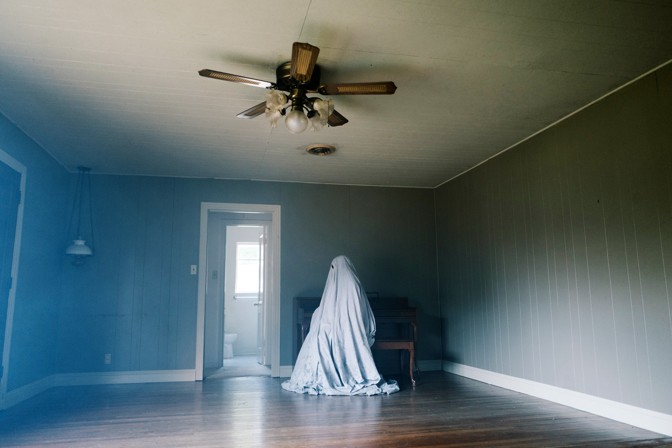
If you’re feeling trapped at home: A Ghost Story
The protagonist of David Lowery’s meditative tale of love and loss is an unnamed man (played by Casey Affleck) who is killed in a car accident and begins to haunt his own house, wearing a white sheet and solemnly watching his wife (Rooney Mara) until she moves out. Since he’s tied to the building, the movie becomes a strange fairy tale about watching as things change, powerless to stop them. That may sound harrowing, but the film revels in the beauty of the passage of time as well as the tragedy, and has a great (if inadvertent) depiction of social distancing. (Netflix)

If you’re feeling nostalgic for human connection in the city: Frances Ha
Noah Baumbach and Greta Gerwig’s effervescent collaboration (he directed; she stars; they wrote together) might be the best movie in both of their storied careers. Following a 27-year-old dancer (Gerwig) trying to scrape out a life in New York, it perfectly captures the intense need for close friendship that people have in their post-college lives, and the pain and joy that comes with that. It’s also a terrific snapshot of New York in the early 2010s that will provide a bit of comfort for anyone missing the city’s busy streets. (Criterion Channel, Netflix)
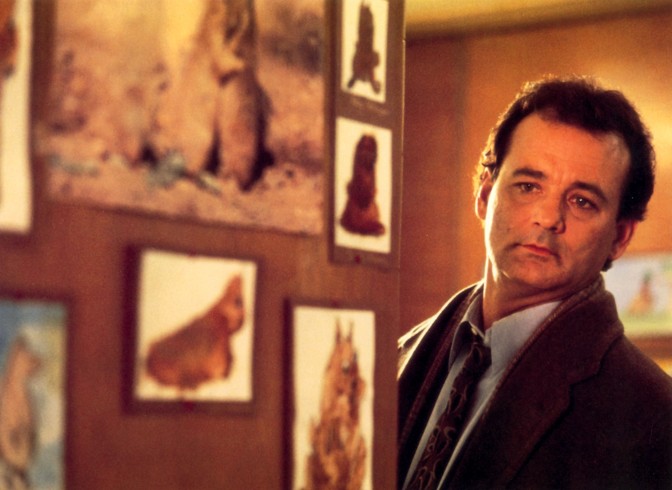
If you feel like you’re living the same day over and over: Groundhog Day
An obvious choice, perhaps, but no wonder—Harold Ramis’s film is one of the most reliable and delightful pieces of entertainment in Hollywood history. The plot’s template has been much-copied over the years: Bill Murray’s misanthropic newsman travels to a quaint town and gets stuck endlessly reliving the second of February, unable to break out of the loop. It’s not only a wonderful romantic comedy, but also a slyly spiritual tale, a parable of self-improvement that never feels preachy and that reveals more depth on every viewing. (Netflix)
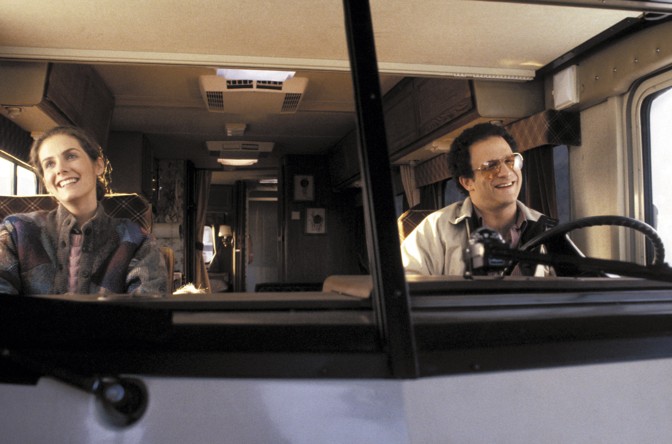
If you’re fantasizing about going on the road: Lost in America
Albert Brooks’s 1985 satire of an upper-middle-class couple buying an RV and trying to shed their bourgeois trappings is just as biting as it was upon release. Most of all, it’s an object lesson in looking before you leap—sure, the open highways and the great unknown might seem tempting, but even with a fully loaded Winnebago, problems will spring up sooner than you think. (HBO Now, Hulu)

If you want to luxuriate in movie-star charm: Out of Sight
Steven Soderbergh’s sizzling neo-noir has long been one of my go-to films for summoning a good mood. Though it’s an expertly made work with a sharply funny screenplay, its real magic comes from its fantastic central couple, played by George Clooney and Jennifer Lopez. Both are early in their careers, but they already sparkle with superstar appeal, particularly in what might be the best love scene ever filmed. (HBO Now, Hulu)
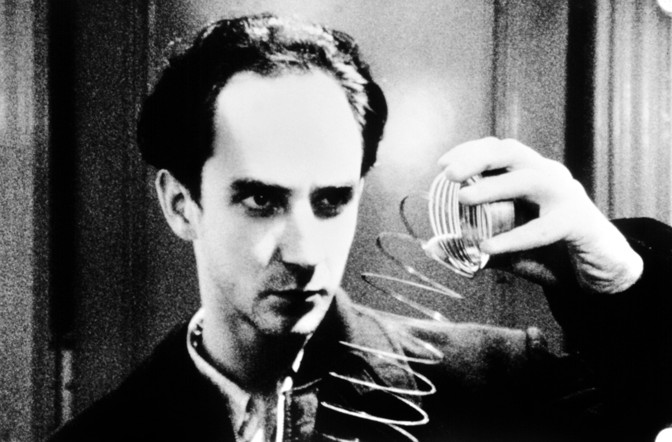
If you’re looking to indulge your paranoia: Pi
Darren Aronofsky’s debut thriller was made in 1998 for $60,000, featured a cast of total unknowns, and focused on mental illness, mysticism, and math. Even so, it became a cult hit because of Aronofsky’s deft but surreal storytelling. It’s a great portrayal of cabin fever, starring Sean Gullette as a shut-in who is either going slowly insane or has found a mathematical way to predict the future and communicate with God. Or both. (Hulu)

If you’re looking for something meditative and satisfying: Jiro Dreams of Sushi
David Gelb’s 2011 documentary about the Japanese master chef Jiro Ono perfects many of the visual tropes that cooking documentaries rely on—montages of food being delicately assembled to orchestral music, and lush close-ups of individual meals. That this imagery is now ubiquitous doesn’t make it any less watchable, and the serenity of Jiro’s approach to sushi versus the bluntness of his relationship with his children remains totally transfixing to watch. As a bonus, Netflix is also currently streaming Documentary Now!’s perfect send-up of Jiro, an episode titled “Juan Likes Rice and Chicken.” (Hulu, Netflix)

If you’re looking to broaden your horizons: Martin Scorsese’s World Cinema Project
Though Scorsese is a master of cinema in his own right, one of his most significant contributions to the medium is his film foundation, which restores and preserves some of the world’s best movies in order to bring them to a wider audience. Criterion currently has 17 of these from countries such as Senegal, Thailand, Turkey, Brazil, and Cuba, all gathered in one neat package. The service also has many other collections worth browsing, including retrospectives of the acting careers of such legends as Burt Lancaster, Wendy Hiller, and Max von Sydow, with more cycling in all the time. (Criterion Channel)

If you want to settle in for a long watch of one of the best movies of the century: Zodiac
David Fincher’s greatest film is two hours and 37 minutes long and better than any true-crime documentary. Its narrative of the Zodiac Killer’s crimes becomes a reckoning with America’s never-ending obsession with murder, and with the even more intoxicating fallacy that every problem—no matter how frightening or obscure—can be solved. Zodiac is always worth watching, but right now, it offers a cautionary tale of a government and its private citizens haphazardly coming together in a time of crisis. (Netflix)

If you just want to laugh: Midnight Run
Martin Brest’s 1988 buddy comedy, starring Robert De Niro as an irascible bounty hunter and Charles Grodin as his curmudgeonly quarry, is, in my opinion, the most watchable film ever made. I defy you to turn on Midnight Run for even 30 seconds without getting instantly sucked in. Every scene is funny, the humor is never overplayed, and the lead actors unlock performances from one another that you might have thought impossible. If self-quarantining is getting you down, I recommend 126 minutes of Midnight Run, stat. (Hulu)

 As scarce as Disney+ originals might be at the moment, Disney is apparently being picky about just what reaches its streaming service. Hollywood Reporter sources claim Disney+ developed and ditched three originals in the past year, including an unann...
As scarce as Disney+ originals might be at the moment, Disney is apparently being picky about just what reaches its streaming service. Hollywood Reporter sources claim Disney+ developed and ditched three originals in the past year, including an unann...
 Black Mesa has had a lengthy development journey, to say the least. In 2006, fans of Half-Life decided to port the game to the then-new Source engine (upon which Half-Life 2 was based). Valve had actually done so itself, but the results were poor. Cr...
Black Mesa has had a lengthy development journey, to say the least. In 2006, fans of Half-Life decided to port the game to the then-new Source engine (upon which Half-Life 2 was based). Valve had actually done so itself, but the results were poor. Cr...

 It's not just Facebook and Google fighting false coronavirus information. Twitter has permanently banned financial site and conspiracy promoter Zero Hedge after it shared a story that not only made unsubstantiated claims that a Wuhan-based scientist...
It's not just Facebook and Google fighting false coronavirus information. Twitter has permanently banned financial site and conspiracy promoter Zero Hedge after it shared a story that not only made unsubstantiated claims that a Wuhan-based scientist...

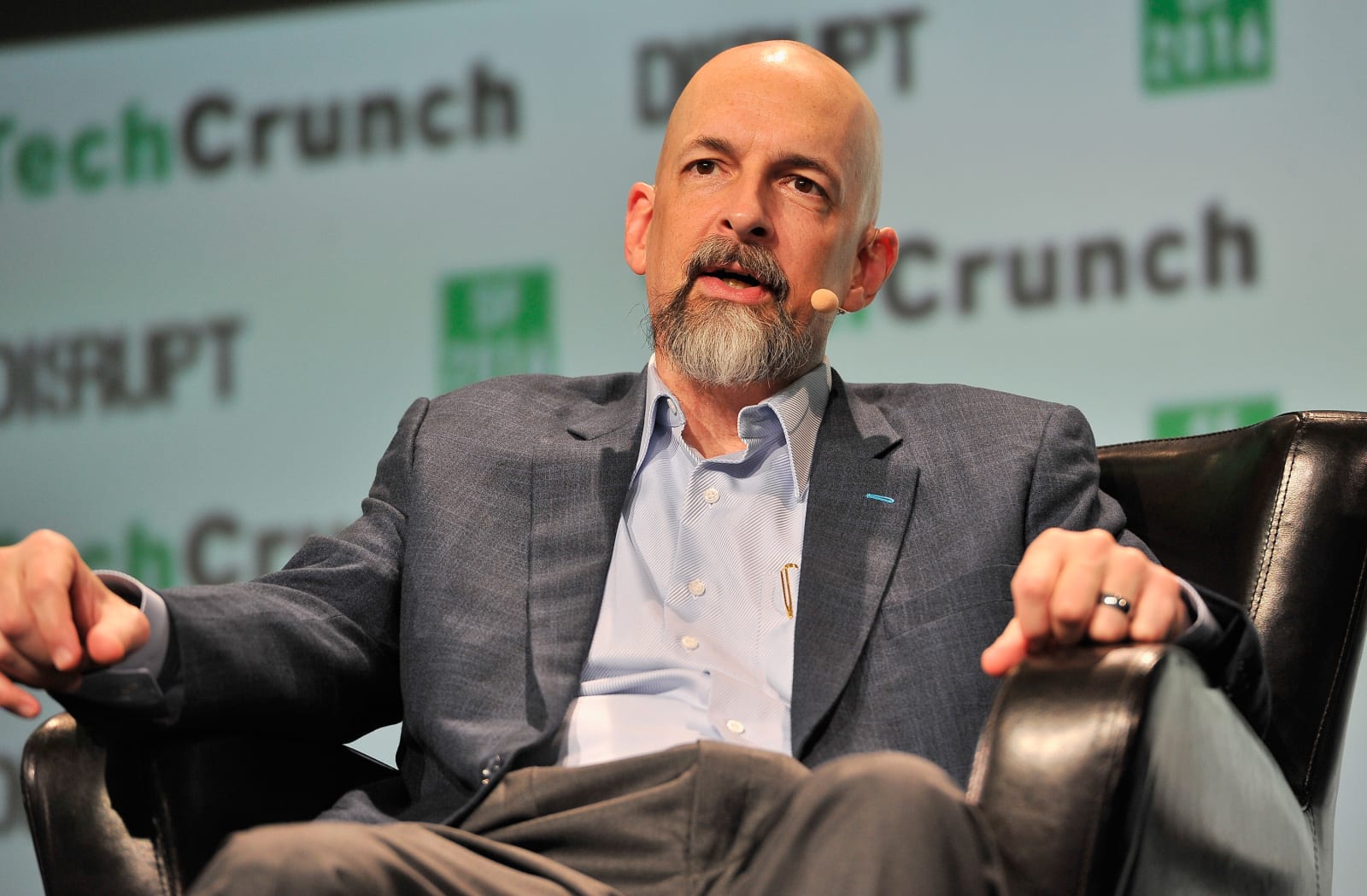 Neal Stephenson's influential Snow Crash is finally poised to reach screens, although you'll have to be picky about where you watch it. HBO Max has ordered work on a TV series adaptation of the sci-fi novel that will be written and co-run by the Sco...
Neal Stephenson's influential Snow Crash is finally poised to reach screens, although you'll have to be picky about where you watch it. HBO Max has ordered work on a TV series adaptation of the sci-fi novel that will be written and co-run by the Sco...
 Earlier this year Genius announced it suspected Google of copying its lyrics data -- now it's thrown its weight behind a lawsuit accusing the company of exactly that. According to Genius, lyric licensing company LyricFind pulled lyrics directly from...
Earlier this year Genius announced it suspected Google of copying its lyrics data -- now it's thrown its weight behind a lawsuit accusing the company of exactly that. According to Genius, lyric licensing company LyricFind pulled lyrics directly from...

 Amazon's push into sci-fi increasingly entails some of the biggest names in the business, both on-screen and off. After months of waiting, Amazon has ordered a Prime Video series adaptation of William Gibson's sci-fi novel The Peripheral that will b...
Amazon's push into sci-fi increasingly entails some of the biggest names in the business, both on-screen and off. After months of waiting, Amazon has ordered a Prime Video series adaptation of William Gibson's sci-fi novel The Peripheral that will b...
 Australia has proposed another in a series of zany attempts to control the internet. This time, the government wants to do facial scans to confirm a user's age before they can watch porn or gamble online, according to the Sydney Morning Herald. Then,...
Australia has proposed another in a series of zany attempts to control the internet. This time, the government wants to do facial scans to confirm a user's age before they can watch porn or gamble online, according to the Sydney Morning Herald. Then,...
 Apple isn't cutting corners with its TV+ version of Isaac Asimov's Foundation. The tech giant has cast its first two stars for the show, choosing Chernobyl's Jared Harris (above) to play math genius Hari Seldon and Halt and Catch Fire's Lee Pace as...
Apple isn't cutting corners with its TV+ version of Isaac Asimov's Foundation. The tech giant has cast its first two stars for the show, choosing Chernobyl's Jared Harris (above) to play math genius Hari Seldon and Halt and Catch Fire's Lee Pace as...
 Drivers in Auburn Hills, Michigan, got a heck of a surprise last Saturday night when an electronic billboard starting playing porn. The billboard, located alongside I-75 North between University Drive and highway M-59 in Auburn Hills, began playing t...
Drivers in Auburn Hills, Michigan, got a heck of a surprise last Saturday night when an electronic billboard starting playing porn. The billboard, located alongside I-75 North between University Drive and highway M-59 in Auburn Hills, began playing t...
 Hulu might not have the answer to The Great Question, but it's cooking up something tHGttG fans may appreciate... if it does things right. The streaming platform is developing an adaptation of Douglas Adams' beloved classic The Hitchhiker's Guide to...
Hulu might not have the answer to The Great Question, but it's cooking up something tHGttG fans may appreciate... if it does things right. The streaming platform is developing an adaptation of Douglas Adams' beloved classic The Hitchhiker's Guide to...
 Researchers at Stanford University have created glasses that track your eyes and automatically focus on whatever you're looking at. The so-called autofocals, detailed in a paper published in the journal Science Advances, could prove a better solution...
Researchers at Stanford University have created glasses that track your eyes and automatically focus on whatever you're looking at. The so-called autofocals, detailed in a paper published in the journal Science Advances, could prove a better solution...




 Snapchat has deleted Naughty America's account and taken down the X-rated AR lenses it debuted this week. However, the porn studio isn't backing down quietly, as it's distributing the source files and directions for the lenses, and encouraging fans t...
Snapchat has deleted Naughty America's account and taken down the X-rated AR lenses it debuted this week. However, the porn studio isn't backing down quietly, as it's distributing the source files and directions for the lenses, and encouraging fans t...
 More than two decades after the last movie, another Mortal Kombat film is on the way. Pre-production will start this month and the cameras are scheduled to start rolling in Adelaide, Australia later this year. South Australia Premier Steven Marshall...
More than two decades after the last movie, another Mortal Kombat film is on the way. Pre-production will start this month and the cameras are scheduled to start rolling in Adelaide, Australia later this year. South Australia Premier Steven Marshall...